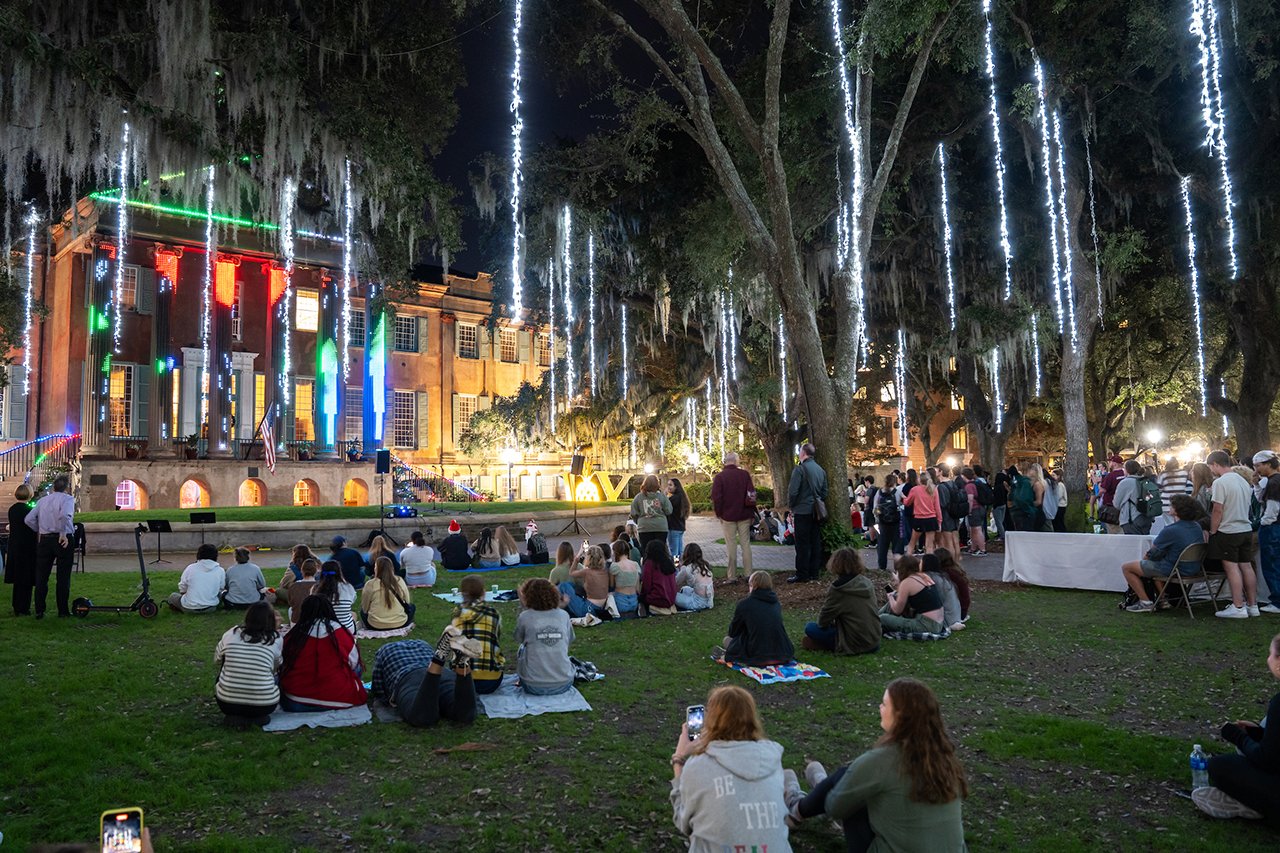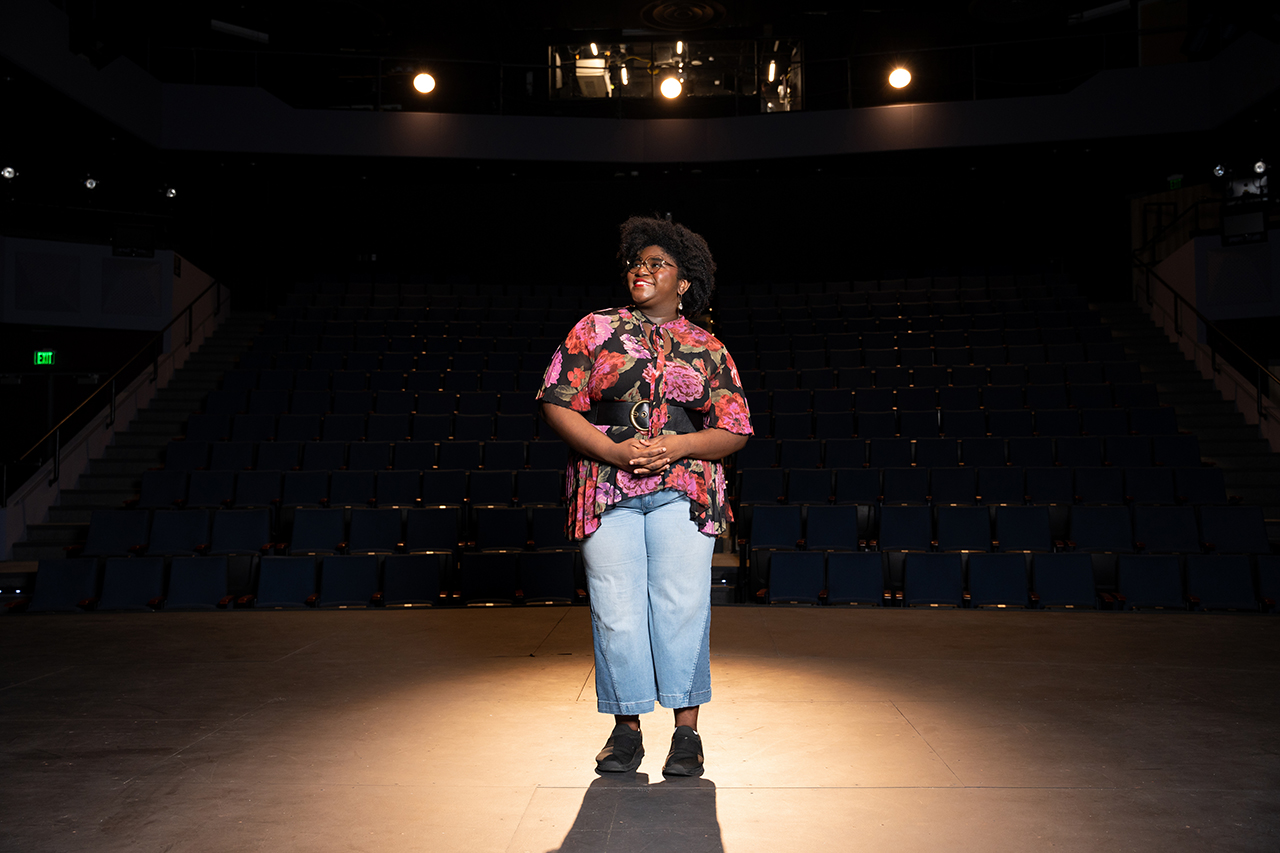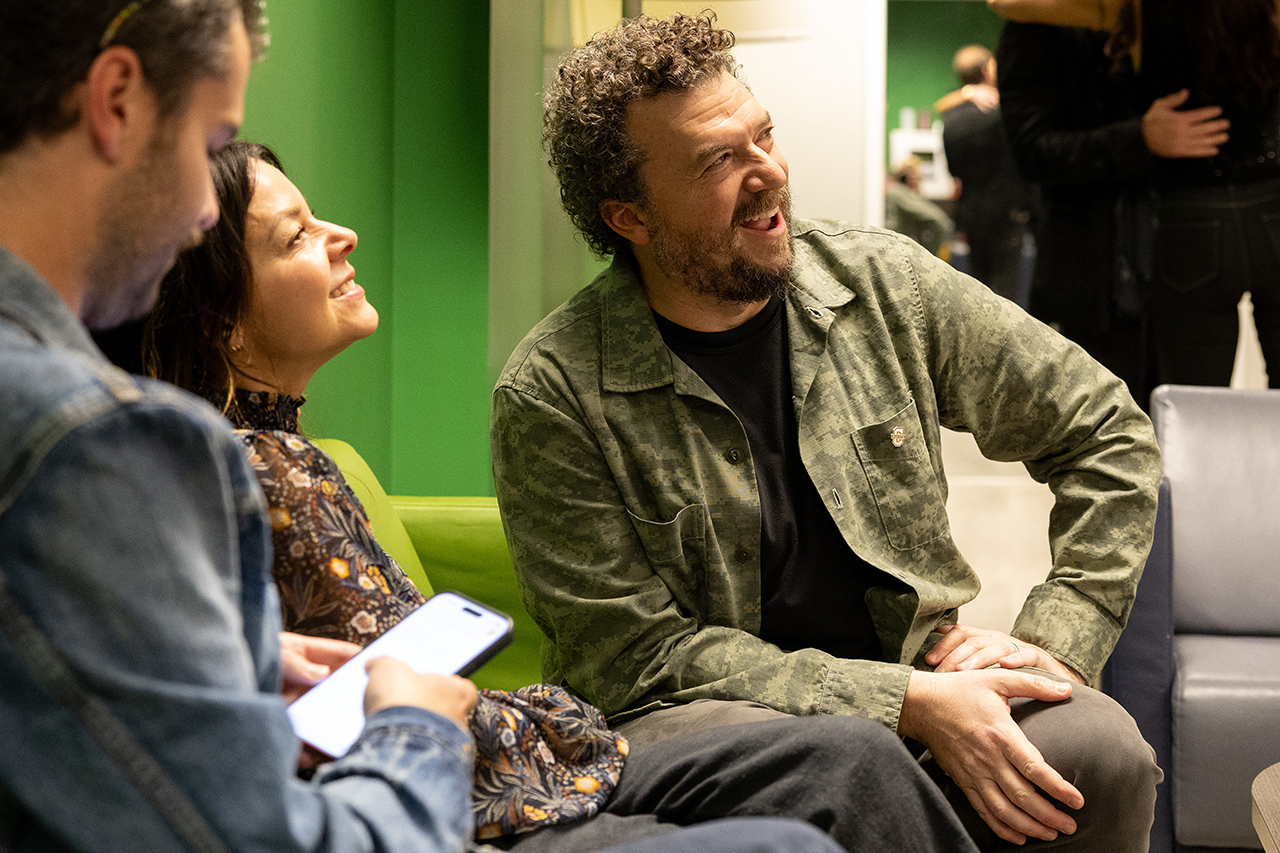From Marine Science to National Policy: CofC Grad Charts the Way
As a John A. Knauss Marine Policy Fellow, Jess Kusher '24 (M.S.) is helping advance national conversations around ocean science and policy.
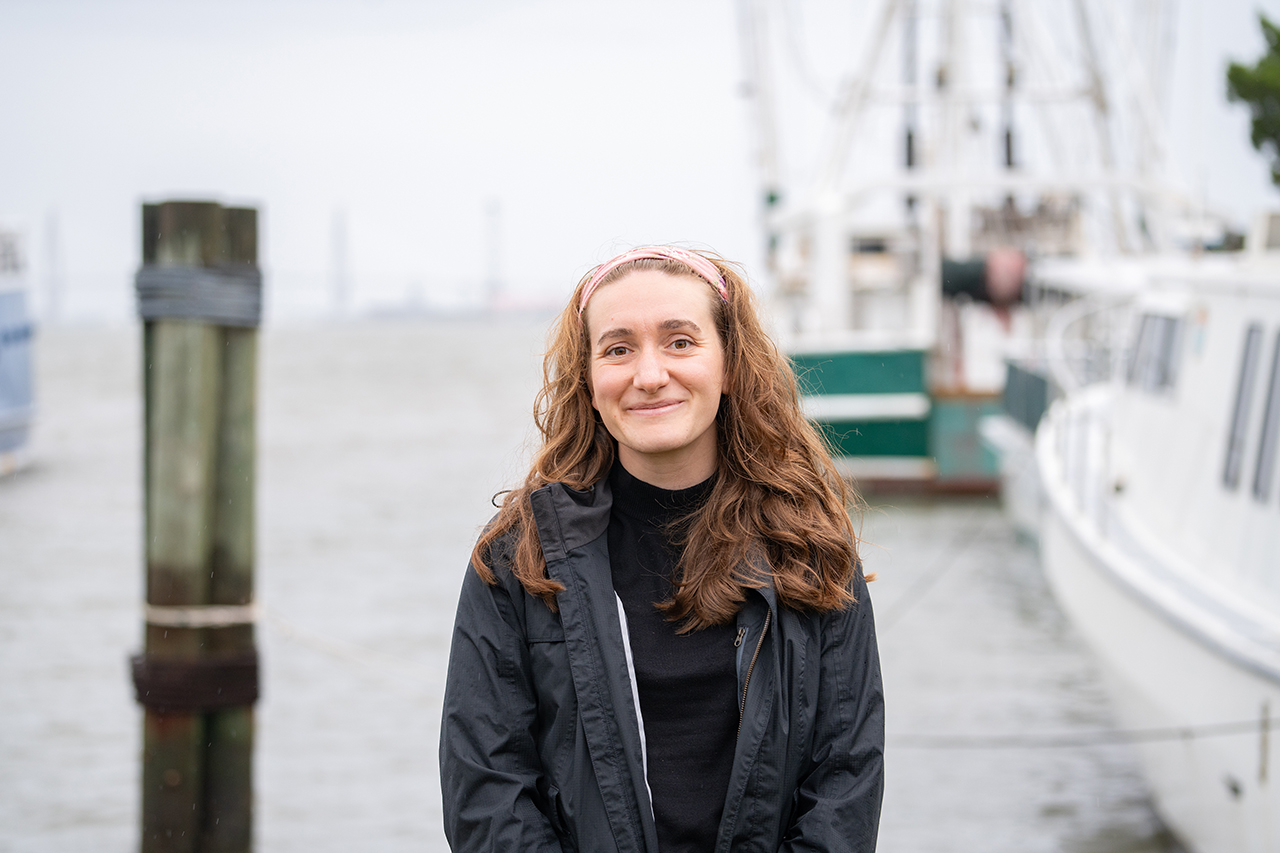
Photos by Catie Cleveland
Standing beneath the iconic monuments of Washington, D.C., it can feel like the ocean is a world away. But for Jess Kusher ’24 (M.S.), a recent graduate of the College of Charleston master’s program in marine biology, the tides of the Lowcountry continue to shape the work she does each day as she helps advance national conversations around ocean science and policy.
Kusher is spending a year in the nation’s capital as a John A. Knauss Marine Policy Fellow, one of the most prestigious programs for early-career marine scientists. The fellowship places graduate students in federal offices to bridge the worlds of science and policy. For Kusher, it has been a powerful next step in turning her passion for the ocean into a career that reaches far beyond the shoreline.
A Close-Knit Community With Big Impact
Kusher came to the College already passionate about marine science. But she says it was the collaborative environment at the Grice Marine Lab that broadened her understanding of the field in ways that now guide her work in Washington.
“Being at the College of Charleston allowed me to be part of a close-knit community of researchers,” she says. “I didn’t just focus on my own specialty. I got to engage in my peers’ research – whether it was sea turtles, horseshoe crabs or phytoplankton. That broader understanding has been incredibly helpful in this fellowship.”
Instead of becoming narrowly focused on one research niche, Kusher gained a holistic view of marine science, something she says is vital when communicating with policymakers who must make informed decisions quickly and often without scientific backgrounds.
Research Roots, Global Perspective
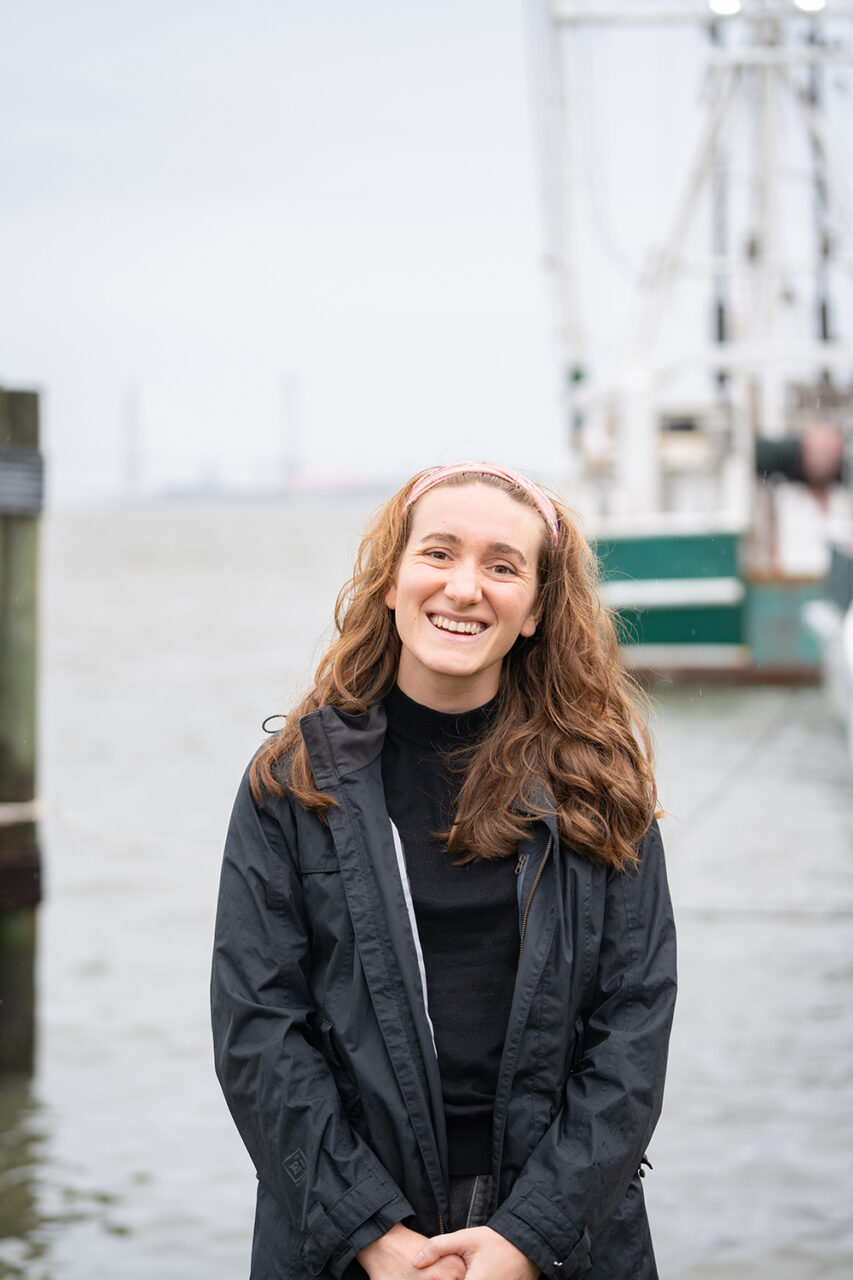
Kusher’s master’s research centered on blue carbon in salt marsh ecosystems, including work with satellite data from NASA and the European Space Agency. While her current role focuses more on ocean policy than climate policy, that research gave her a crucial perspective on collaboration.
“Working with NASA and ESA satellites gave me a broader perspective on how science – especially ocean science – has to be done in collaboration,” she explains. “Our technology is stronger when we work with partners across the U.S. and internationally. Coming to Washington reinforced that. Almost nothing here happens alone.”
From the Marsh to the Capitol
Transitioning from fieldwork and lab research to the fast-paced world of D.C. required adapting quickly, especially in communication style.
“Instead of writing research reports, I’m now writing succinctly for non-science audiences,” says Kusher. “If you can write to a deadline, you can handle D.C. If you like to take your time and write full of prose, D.C. isn’t a super comfortable place to be.”
Her experience with CORALS, a community outreach program through the Grice Marine Lab, proved to be unexpectedly perfect preparation.
“If you can engage a 6-year-old and hold their attention, you can also hold the attention of people in Washington who don’t have much time,” she says with a laugh.
Finding Purpose in Public Impact
Not all policy work comes with instant gratification, but one part of the fellowship has allowed Kusher to see impact up close: guest lecturing at the Smithsonian’s National Museum of Natural History.
“You talk to someone about the ocean and immediately watch them connect the dots,” she says. “You show them plastic pulled from a seabird’s stomach, and suddenly they’re thinking differently about waste or fishing line. That immediate impact is incredibly rewarding.”
From Charleston Roots to a National Network
Leaving Charleston wasn’t easy – not just for the salt marsh sunsets, but for the community she found at CofC.
“Southern hospitality is so real,” she says. “Washington is nice – but not in the same way. The fellowship gave me a community here, but it’s a very different culture.”
She remains deeply grateful to the mentors who helped guide her path, including faculty at the Grice Marine Lab who advised her research, wrote recommendation letters and encouraged her to pursue the fellowship.
Advice for CofC Students Who Love the Ocean
For students hoping to follow in her footsteps, Kusher says the key is to start showing up.
“Go spend time at the Grice Marine Lab. Get to know the faculty and get involved in research – even if it’s volunteering at first,” she says.
She also encourages students to practice communicating science to different audiences, a skill that opens doors far beyond the lab.
Looking Ahead

As she completes her fellowship year, Kusher is applying to Ph.D. programs where she hopes to study biophysical modeling: using math to describe the impact of environmental change on plants and animals. Later she envisions a future where she blends research, teaching and policy.
“Ultimately, I want to be a faculty member like the incredible mentors I’ve had, and help others learn about the ocean,” she says. “Ocean solutions require collaboration – academia, government, nonprofits, international partners and community voices. I want to stay in the space between academia and the federal government and be part of the conversation for whatever is to come.”
Corrina Castillo is a senior communication major from East Hampton, New York, with interests in writing and broadcast journalism and TV production. She is a Martin Scholar and a member of the Phi Eta Sigma National Honors Society and the Lambda Pi Eta National Communication Honor Society.

